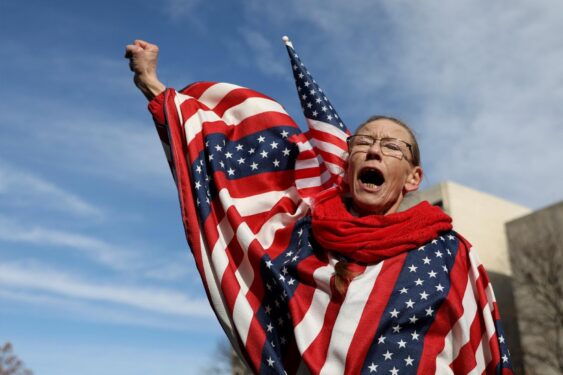
WINDSOR TERRACE — The U.S. needed reconciliation before the Nov. 3 presidential election. The election, marked by rancorous debate among candidates and voters, followed months of ongoing national discord over race relations and how best to deal with the deadly COVID-19 pandemic.
The Catholic vote reflected the national division. It split evenly between incumbent President Trump and presumptive winner Joe Biden.
“The election results show that the Catholic Church is as divided as our nation,” David Gibson, director of Fordham University’s Center on Religion and Culture told The Associated Press.
“But,” he added, “the real divide is race and ethnicity, not theology.”
Two weeks after Election Day, President Trump had not eased up on challenging the voting results. Reconciliation of the citizenry seemed elusive.
But leaders of the Catholic clergy in Brooklyn and across the nation reminded the Church of its unique role in helping the nation heal.
“Reconciliation is part and parcel of our faith,” said Bishop Nicholas DiMarzio, Diocese of Brooklyn. “Jesus reconciled us to the Father and as His followers; we must also reconcile with one another. “This obviously is in the Church context but in the national context, we need to be promoters of reconciliation among people. We should take the lead.”
Archbishop José Gomez of Los Angeles agreed. His comments came in a statement made in his role as president of the U.S. Conference of Catholic Bishops.
“As Catholics and Americans, our priorities and mission are clear,” he said. “We are here to follow Jesus Christ, to bear witness to His love in our lives, and to build His Kingdom on earth.
“I believe that at this moment in American history, Catholics have a special duty to be peacemakers, to promote fraternity and mutual trust, and to pray for a renewed spirit of true patriotism in our country.”
Challenging Catholics to lead might be easy to say. But it takes some thought to identify tangible steps, followed by disciplined actions to see them through, the clergy said.
“I was thinking about this just the other day when I was watching the news,” said Father Alonzo Cox, pastor of St. Martin de Porres Parish. “What is good for the people of our country, especially while we’re still in the midst of COVID, and all this unrest?
“Reconciliation is a great word, but how do we truly reconcile our feelings? The first key is prayer.”
Father Cox said he has been invited by a fellow priest to give the homily at a prayer meeting the day before the inauguration in January.
“I thought that was a great idea,” he said. “We’ll be praying for the ingoing president and the outgoing president, and that our nation might come together.
“We can look to our Lord, of course. He wanted to bring everybody together.”
Father Cox told the Tablet on Nov. 17 that the Gospel for that day included the story of the tax collector Zacchaeus (Luke 19:1-10). Jesus sought to dine with him, despite the criticism of observers who detested tax collectors.
“He said, ‘The Son of Man has come to seek and to save what is lost,” Father Cox recalled from the Scripture. “He said he wants to reconcile hearts and to allow our hearts to be filled.”
Conversely, prolonged political bitterness in people’s hearts deters efforts to achieve a common good for all people. Seeking that common good is “the whole purpose of government,” Bishop DiMarzio said.
“Continuing the battle that has no end will never allow us to reach the common good,” the bishop added. “Politics is the art of the possible. Compromise is embedded in any political system. Apart from politics, our faith teaches us that we must work together for the common good and achieve it in a moral context.”
Archbishop Gomez urged Catholics to pursue decency in interactions with all people, including people with opposite views.
“Democracy requires that all of us conduct ourselves as people of virtue and self-discipline,” he said. “It requires that we respect the free expression of opinions and that we treat one another with charity and civility, even as we might disagree deeply in our debates on matters of law and public policy.”
Father Cox noted that discipline will help people control their reactions to opposing political statements expressed by fellow citizens, or on other platforms like social media.
To do that, people must try to recognize when they are experiencing an emotional reaction, and not give in to impulses to respond contentiously.
“I’m reminded of my grandmother,” he said. “She always said never talk about religion and politics at the dinner table, right? But we’re always going to have political differences. But can we listen to one another and hear what someone else is thinking? If we do that, we might meet in the middle and agree to disagree.
“But I’m not going to let all those emotions get in the way of the goal to bring all of us together.”
[Related: Bishops’ Anti-Racism Ad Hoc Committee Up for Reauthorization]
